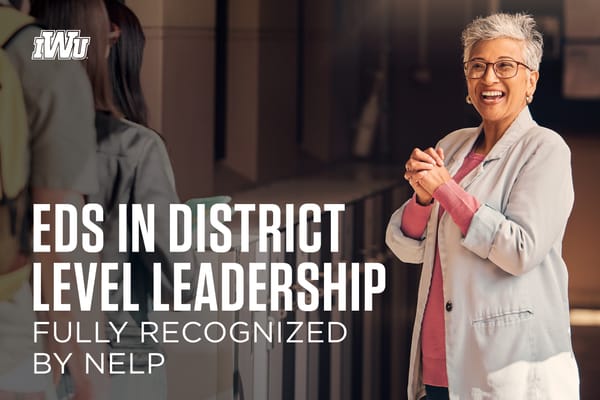Preparing for Licensure: Tips for Counseling Graduate Students

Do you aspire to become a counselor? Whether you dream of working as a career counselor, substance abuse counselor, family counselor, or any other specialization within the field, the fact remains that you will need to be licensed.
So, what does it take to become licensed and a counselor, how can you prepare for your licensing exam, and how can you keep your license current as your career progresses? We're getting into all of this and more below.
Understanding the Licensure Process
The most important thing to keep in mind when it comes to getting licensed as a counselor is that each state sets its own specific requirements for doing so. With this in mind, you'll need to research and follow the specific requirements for the state in which you live and intend to work.
Types of Licensure Exams for Counselors
The specific exam that you'll need to pass to become licensed as a counselor may also vary depending on your state's requirements. In general, most states accept one of the two following examinations for licensure, which include:
Requirements for Licensure
Again, the specific requirements for counseling licensure can vary by state, so it's imperative that you do your own research. However, most states require that counselors have a minimum of a bachelor's degree in counseling or a related field (although some states may require a master's degree), as well as a certain amount of internship or practicum experience in the field.
From there, those applying for licensure must have proof that they have passed the exam required by their state (either the NCE or the NCMHCE). Some states may also require that applicants submit to a background check, provide fingerprints, or submit copies of college transcripts.
Developing an Effective Study Plan
Now that you have a better understanding of counseling licensure requirements, you may be wondering how you can increase your own chances of passing the NCE exam or the NCMHCE exam. Here are a few active learning strategies that could help you succeed.
Start Early and Create a Timeline
Perhaps the most important thing to remember about passing your licensure exam is to start studying sooner rather than later. You can register for your exam date months in advance, so use this time to create a structured study plan that you'll realistically be able to follow. Waiting until the last minute to "cram" before the exam can lead to increased stress and, in many cases, reduced performance.
Setting Realistic Goals and Tracking Progress
Depending on how much time you have to study for your exam, it's a good idea to set some concrete goals for yourself and track your progress as you work toward them. For example, you might choose one of the NCE's core content areas to focus on each week in the two months leading up to your exam. Specifically, the core content areas covered in the NCE include:
- Human growth and development
- Social and cultural foundations
- Helping relationships
- Group work
- Career and lifestyle development
- Appraisal
- Research and program evaluation
- Professional orientation
Balancing Study Time With Other Responsibilities
If you have other responsibilities on your plate, time management for exam preparation will also be key to your success. This will mean being very deliberate about the time you set aside for studying around other obligations in your schedule. Many people preparing for their counseling examinations find it helpful to actually write their study time into their weekly planner or schedule, treating it as any other important task or appointment,
Study Strategies for Licensure Exams
Whether you'll be taking the NCE or the NCMHCE, there are some tried-and-true study strategies you can keep in mind as you craft your own study plan.
Using Practice Tests to Assess Knowledge
Take advantage of practice tests to see where you stand and get a better feel for which areas you may need to focus on most in your study sessions. Ideally, practice tests should mimic the format and content of the real test as much as possible. For the NCE, for example, this means your practice exam should consist of 200 multiple-choice questions.
Active Learning Techniques for Better Retention
Active learning strategies can be especially useful in improving recall and retention, especially when studying for a larger exam. Some specific active learning techniques to work into your study sessions may include:
- Participating in group discussions.
- Engaging in simulations or case studies.
- Writing about assigned readings or other topics in the field that interest you.
Forming Study Groups for Collaborative Learning
Studying for a huge exam on your own can feel isolating. Consider forming a study group with peers from your degree program as a means of making the process more enjoyable and increasing your own accountability. You can even share study guides and other materials as a means of collaborative learning.
Resources for Licensure Exam Preparation
Looking for more help as you prepare to take your counseling exam? Here are some resources to consider.
Recommended Study Materials and Books
There are many study guides, practice exams, and similar resources specifically written for students preparing to take the NCE or NCMHCE. The National Board for Certified Counselors (NBCC) has published its own list of examination study guides and other materials directly on its website.
Online Courses and Workshops
It may also be possible to enroll in dedicated online courses or one-time workshops that can help you prepare for counseling licensure exams. Often, these courses and workshops will meet on set dates and times, providing students with insights and strategies to help with test-taking.
Mobile Apps and Digital Tools for Studying
You might also consider some mobile apps and other digital tools to help you study for the NCE or NCMHCE. For instance, a digital notecard app can be a great way to memorize different counseling terminology on-the-go without the need to carry physical index cards with you.
Insights From Recent Graduates
Looking for some practical advice from graduates who have taken the NCE and NCMHCE tests for themselves? Here are some tips from newly licensed counselors from a Reddit thread on the topic of "What's something you wish you knew before taking the NCE exam?"
Real-Life Study Tips From Newly Licensed Counselors
Some study tips offered in this Reddit thread include:
- "Pace yourself and don't get psyched out if you start feeling tired/end up questioning your ability to read."
- "Study purple book, brush up on theories, stats (basics like bell curve), and group."
- "Study from an app every night consistently and you will be good."
- "Do a few practice exams. One to set up your baseline and show what you need to study, 1-2 to gauge progress and reassess your weak areas, and one last one maybe a week or two before you take the real one."
Overcoming Test Anxiety and Staying Confident
When it comes to overcoming anxiety around licensing exams and maintaining confidence, previous test-takers shared the following advice:
- "It's not uncommon to feel like you failed the test immediately afterwards, but you probably didn't."
- "Remember that you technically only need to pass with 65% correct answers, so just a little more than 100 questions correct."
Navigating the Licensure Application Process
Ready to register for your NCE or NCMHCE test? There are a few things to keep in mind.
Understanding the Exam Registration Process
Remember that not just anybody can register to take the NCE or NCMHCE. You will need to first create an account on the NBCC website and meet all requirements for registration before scheduling your exam either online or over the phone.
What to Do After Passing the Licensure Exam
Once you have passed your NCE or NCMHCE exam, the next step is to apply for your counseling license through your state.
Next Steps for Obtaining Your Counseling License
While all states have their own unique requirements for licensure application, all will require you to submit a list of documents along with your formal application. Some examples of official documents that you may need to send along include:
- A copy of your NCE or NCMHCE test scores.
- An official copy of your college transcripts.
- Proof of supervised clinical experience.
Planning for Continuing Education and Professional Development
Even after you're licensed, your state will require you to renew your license every so often. Most states require continuing education for counselors as a stipulation for renewal, so be sure to research your state's specific continuing education requirements. Professional development for counselors can help you stay up to date on industry trends and innovations while providing your clients with the best possible care.
Ready to Pursue Your Counseling Degree?
Working as a counselor can be an extremely rewarding profession, especially if you're the type of person who enjoys helping others and making a difference. Now that you have a better understanding of the counseling licensure requirements, you'll need to meet to start working in the field, you can move forward with confidence.
Still looking for the right counseling degree program to meet your needs? Indiana Wesleyan University 's Division of Counseling offers a number of programs at the undergraduate and graduate level to help you prepare for a future in this dynamic field. Get in touch to request more information today, or get the ball rolling with your online application for admission.
Sources
https://nbcc.org/certification/schedule
https://pmc.ncbi.nlm.nih.gov/articles/PMC8653153/
https://www.reddit.com/r/therapists/comments/zf69sv/whats_something_you_wish_you_knew_before_taking/




